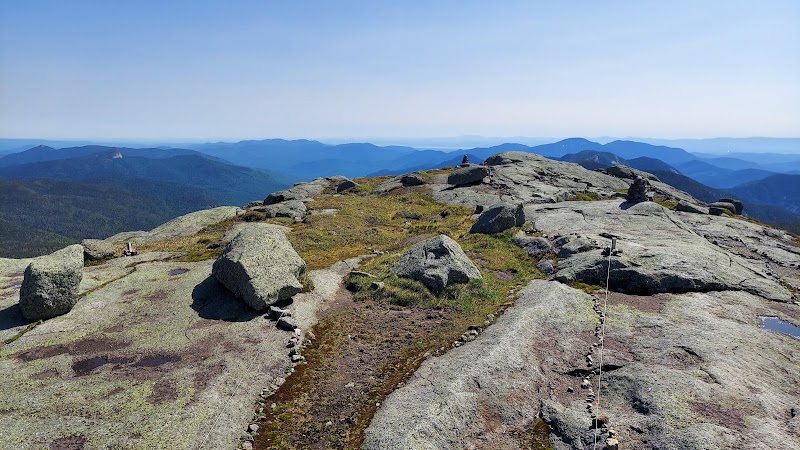
Dartmouth Night Run: Adventure and Practical Guide to West Lebanon’s Trail Trek
Dartmouth Night Run near West Lebanon, NH, offers an engaging 4.5-mile forest loop with moderate elevation and scenic river valley views. Ideal for hikers who want a balanced adventure with practical terrain, it’s a trail that encourages exploration without overwhelming with difficulty.
Hydrate Before and During Your Hike
Carry at least two liters of water to stay hydrated, especially during warm months or if hiking in the late afternoon heat.
Wear Trail-Ready Footwear
Use shoes with good grip and ankle support to handle rocky patches and occasional slippery roots safely.
Bring a Headlamp for Evening Returns
If you plan to hike near dusk, pack a headlamp. The trail’s forest cover darkens quickly after sunset.
Check Trail Conditions After Rain
Brooks may swell and parts of the trail can become slick, so assess conditions and use caution if it's been wet recently.
Dartmouth Night Run: Adventure and Practical Guide to West Lebanon’s Trail Trek
Dartmouth Night Run, located just outside Hanover in West Lebanon, New Hampshire, offers a refreshing trail experience for hikers seeking a balance between challenge and accessibility. This approximately 4.5-mile loop features an elevation gain of about 900 feet, threading through dense forest and revealing unexpected viewpoints that reward steady effort with sweeping vistas across the Connecticut River Valley.
The trail’s terrain is a mix of firm dirt path, scattered roots, and occasional rocky patches that demand good footwear but remain manageable for most moderately fit hikers. The forest, alive with chestnut oaks and maples, pushes back with a quiet resilience, murmuring through leaves and branches, offering shelter while daring you forward. Water crossings are seasonal but manageable, with small brooks urging you to navigate carefully, especially after rainfall.
Beginning near West Lebanon, the trail quickly climbs through a section of hemlocks and birches that cast elongated shadows in the late afternoon. Around the midpoint, a rocky outcrop appears, a natural lookout presenting broad views to the west—perfect for a short break or a photo stop. Here, the air is cooler, the wind exchanging stories with the spruce, reminding you that nature is a force to be respected.
The return loop meanders back through softer terrain, allowing you to recalibrate pace and soak in the forest’s subtle changes. The trail’s rhythm fluctuates naturally: moments of short breath with stronger climbs, balanced by gentler stretches where the forest floor feels like a steady finger pressing gently against your shoe.
Preparation pays dividends. Hydration is crucial; bring at least two liters, especially during warmer months. Footwear with solid ankle support and grip will navigate the route’s occasional slick rocks and uneven ground. Timing your hike toward late afternoon offers a unique play of light—sunset hues filtering through branches—but ensure you carry a headlamp if you push into dusk, as visibility drops quickly.
Whether you’re pacing for exercise or strolling to absorb the quiet energy of the woods, Dartmouth Night Run engages on its own terms. It doesn’t demand victory but invites interaction, a spirited exchange between hiker and terrain. This trail is real and present, offering a contemporary outdoor experience that respects your time and rewards curiosity.
West Lebanon’s proximity to Dartmouth College and Hanover’s hospitality makes it an ideal base. Post-hike, explore local eateries or unwind by the Connecticut River to round out your day.
Dartmouth Night Run isn't just a hike—it’s a thoughtful invitation to step outside into a landscape that challenges, refreshes, and quietly insists on your attention.
Nearby Trips
All Adventures
Boat Charters
Water Activities
Adventures near West Lebanon, New Hampshire
Discover the unique and memorable adventures that make West Lebanon, New Hampshire special.
Frequently Asked Questions
Are dogs permitted on the Dartmouth Night Run trail?
Yes, dogs are allowed but must be kept on a leash. The trail’s varied terrain and wildlife make leash control important to protect both pets and local fauna.
Is the trail well-marked and easy to follow?
The loop is clearly marked with signs and blazes. Still, carrying a map or using a GPS app can be helpful, especially after rain when some markings may be less visible.
Are there any water sources on the trail?
Small brooks cross parts of the trail seasonally. They are not reliable for drinking, so carry your own water supply.
Is the Dartmouth Night Run suitable for children or beginners?
The trail is moderately challenging; it’s doable for older or fit children who have some hiking experience, but beginners should pace themselves and prepare for elevation gain.
What is the best time of day to hike here?
Late morning to early afternoon offers good light and moderate temperatures. Late afternoon brings excellent light for photography but requires careful timing to avoid darkness.
Are there any facilities near the trailhead?
Near West Lebanon, you’ll find parking and restrooms, plus dining and lodging in nearby Hanover, making logistics straightforward for day hikers.
Recommended Gear
Trail Running Shoes or Hiking Boots
Provide necessary traction and support across varying trail conditions.
Headlamp or Flashlight
Critical for late afternoon or evening hikes when the forest dims quickly.
Water Bottle or Hydration Pack
Maintains hydration, especially important during warmer weather.
Layered Clothing
Allows adaptation to changing temperatures and weather, especially as you gain elevation.
Local Insights
Hidden Gems
- "A small, rarely visited clearing halfway through the loop provides a quiet spot for reflection surrounded by mature Hemlocks."
- "A rocky ledge near the west viewpoint offers a panoramic view often missed by casual hikers."
Wildlife
- "White-tailed deer frequently cross the trail in early morning or dusk."
- "Listen for the calls of barred owls after dark, a local woodland presence."
- "Eastern chipmunks and various warblers inhabit the understory."
History
"The trail runs through forest lands historically used for timber and farming, with Dartmouth College faculty often leading naturalist trips here in the early 20th century."
